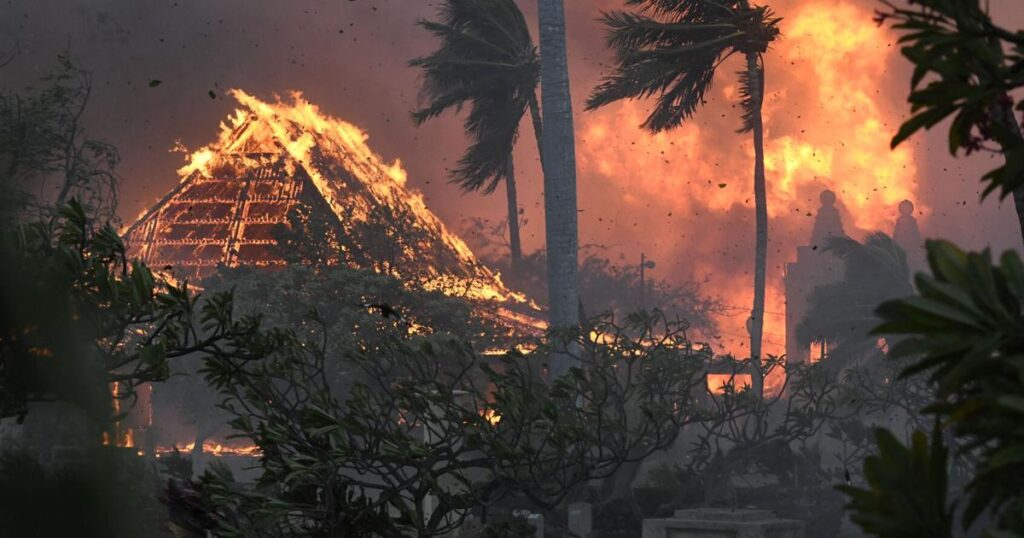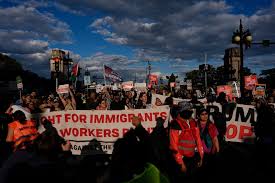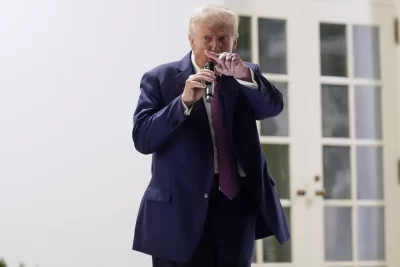
Trapped in their cars, in homes or on the beach as flames, black smoke and embers swirled around them, people in the historic Maui town of Lahaina called 911, the one number that might send help or tell them what to do, where to go.
A man sprayed water on his house as homes around him burned: “I don’t know if we can get out,” he reported. A family huddled in a fireplace, reluctant to leave without their frightened dog, as smoke alarms beeped incessantly. “I cannot get out of my door — there’s flames blowing into the house!” another woman pleaded. “I have a baby.”
The responses from dispatchers, captured in audio recordings provided to The Associated Press through a public records request, reflect how quickly the deadliest U.S. wildfire in more than a century overtook the town — and how challenging it was for overwhelmed officials to keep up with the chaos.
Inundated with calls, and with police and firefighters all occupied, the dispatchers became increasingly powerless to render help, resorting to offering advice like “Leave if you have to leave” and assuring callers that responders were in the area.
The dispatchers often showed compassion, working to soothe residents and telling them to do whatever they needed to do to be safe. As circumstances changed, some callers were told to stay in their cars, others to run for their lives or to head for the ocean. Many were urged to shelter at the Lahaina Civic Center if they could make it.
“Are we in danger?” the caller asked.
“No, ma’am — no. We’re trying our best.”
Minutes later, a caller stuck on another road got sharply different guidance: “If you can’t drive, get out of your car and run.”
The 911 calls released to AP cover a period from 3:30 p.m. to 5:30 p.m. on Aug. 8 as the blaze, whipped by powerful winds from a passing hurricane, bore down on the town.
At least 98 people were killed and more than 2,000 structures were destroyed, most of them homes. The fire leveled Lahaina, a historic town that once served as the capital of the Hawaiian kingdom and a port for whaling ships. Many drivers became trapped on Front Street, surrounded on three sides by black smoke and a wall of flames. They had moments to choose whether to stay or jump into the ocean as cars exploded and burning debris fell around them.
Hawaiian Electric, the state’s primary electric utility company, has acknowledged its power lines started a wildfire on Maui that morning. County firefighters declared the blaze contained and left, only to have flames reemerge nearby.
The county and the families of some victims have sued Hawaiian Electric, saying the utility negligently failed to shut off power despite exceptionally high winds and dry conditions.
The pleas for help came one after another, people calling because they were stuck in cars, trapped by fallen trees and power lines, or worried about loved ones who were home alone. Again and again, overwhelmed dispatchers apologized but said there was no one available to send to their location.
A panicked father reported being trapped in his pickup, with a long line of other cars, behind the old mill of one of Hawaii’s first sugar plantations. Flames were just inches from the vehicle when they finally managed to drive away, still on the line with a dispatcher.
“Somebody’s down over there!” he said.
“Just go, Dad!” his son shouted. “We cannot do nothing for her!”’
Dispatchers also fielded calls from outside Lahaina, including reports of violent crimes and other wildfires burning elsewhere on the island. In all there were more than 4,500 emergency calls and texts that day, according to the Maui Police Department, including hundreds of calls during the time span requested by AP. Normally, dispatchers get about 1,600 calls a day.
“It was an extremely dynamic situation that day, in which our dispatchers adapted to the best of their abilities,” police spokesperson Alana Pico wrote in an email.
Authorities redacted names and addresses from the recordings to avoid releasing personally identifying information. For many of the recordings, it was not clear whether the callers made it to safety.
The dispatcher persuaded the family huddling in the fireplace with the dog to evacuate. There have been no babies among the identified known victims, so the woman with the baby and flames coming in her door likely survived.
Roughly two-thirds of the known victims who died were 60 or older, according to a Maui County list. The calls reflect the helplessness of those who couldn’t escape on their own.



